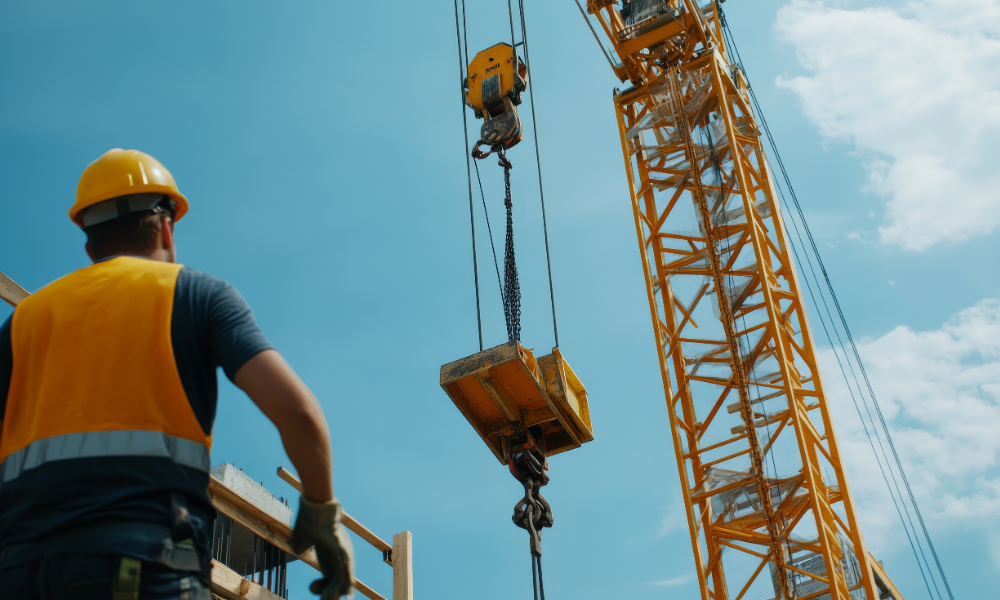'When his body arrived in Bangladesh, we saw that his head was separated from his body'

Dozens of migrant workers have died in preventable workplace accidents in Saudi Arabia, and conditions appear to be deteriorating as the country accelerates preparations for the 2034 FIFA World Cup, according to a new report.
Human Rights Watch (HRW) documented the deaths of dozens of workers from countries including Bangladesh, India, and Nepal.
These workers, aged 23 to 52, were employed in construction and other high-risk sectors — industries currently undergoing rapid expansion as part of Saudi Arabia’s massive infrastructure investments and so-called “giga-projects.”
The safety of workers also became a hot topic in Qatar’s hosting of the football event in 2022. One top Qatari official estimated that the number of deaths among migrant workers involved in preparation for the FIFA World Cup 2022 in the country was at least 10 times higher than the initially released government data.
How did workers in Saudi Arabia die?
According to HRW, causes of death included falls from buildings, electrocution, and even decapitation.
One documented case involved a 48-year-old Bangladeshi man who had worked in construction in Saudi Arabia for over two decades. He died after falling from the fifth floor of a building under construction.
His widow told HRW: “His colleagues present at the site informed me that the place where he fell was the elevator landing area, where garbage and iron pieces had been dumped. At that time, he was doing shuttering work when his safety belt came off, causing him to fall.… As there were many heavy and hard objects there, he got injured in various parts of his head and body.”
She was informed that her husband lost consciousness but was still alive.
“The Saudi police arrived very quickly and rescued him from the accident site and took him to a nearby hospital. After first aid, he was admitted to the intensive care unit (ICU) and died two hours later,” she said.
According to the report, many families continue to suffer long after the deaths of their loved ones.
For example, the widow of a 25-year-old Nepali man said her husband was electrocuted at work, collapsed, and was hospitalised. Although he initially regained consciousness, she was later informed of his death.
“Despite the death being due to work-related causes, it was officially classified as a natural death,” she said. “Furthermore, we did not receive the dead body of my husband, but were instead informed that his last rites were already done in Saudi Arabia itself without our permission. This has put us in further pain. We believe all this was an elaborate plan to deprive us of compensation.”
Another worker was decapitated while attempting to fix a jammed machine, according to his colleagues.
“He turned off the machine to fix it and was trying to remove a stone that was stuck inside when someone accidentally turned the machine back on. His head got caught inside, and he died on the spot,” his wife said.
“When his body arrived in Bangladesh, we saw that his head was separated from his body.”
Compensation for deceased workers’ families
Saudi Arabia’s GOSI covers injuries or deaths that are attributed to work-related accidents. This mandatory insurance is based on a 2 percent salary contribution, and surviving family members of deceased get 84 months of salary with a maximum of 330,000 Saudi rials (US$88,000), according to the report.
HRD noted, however, that the families of the workers in Saudi Arabia are not being compensated daily for their loved ones’ demise.
In 2022, several corporate sponsors of the 2022 FIFA World Cup called on FIFA and the Qatari government to compensate workers who have suffered during tournament preparations.
Now HRW is calling on Saudi authorities, FIFA, and other employers to ensure that “all migrant worker deaths, regardless of perceived cause, time, and place are properly investigated and families of deceased workers are treated with dignity, and receive fair and timely compensation”.
And employers should step up in the current situation in the country, said Michael Page, deputy Middle East director at Human Rights Watch.
“The gruesome workplace accidents killing migrant workers in Saudi Arabia should be a huge red flag for businesses, football fans, and sports associations seeking to partner with FIFA on the 2034 Men’s World Cup and other Saudi ‘giga-projects’.
“Given that Saudi authorities are failing to adequately ensure basic safety protections and social security for migrant workers, local and international companies face a larger responsibility to ensure that serious rights violations are not occurring throughout their business operations in Saudi Arabia.”
“A FIFA World Cup 2034 in Saudi Arabia will see the first-ever 48-team tournament in a single host country,” according to FIFA.
Canada is also hosting the football spectacle, this coming in 2026.
Toronto will host six matches in the FIFA World Cup 26, kicking off on June 12, 2026, with the first-ever men’s FIFA World Cup match on Canadian soil and featuring Canada’s Men’s National Team. Toronto is also hosting a round of 32 match on July 2, 2026.
Amnesty International previously called out Canada Soccer over its silence on the issue of compensation for workers at the 2022 FIFA World Cup in Qatar.
After being plagued with issues of worker safety in the 2022 edition of the World Cup, FIFA said it is looking to hire a CHRO for FIFA World Cup 2026.





